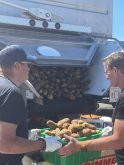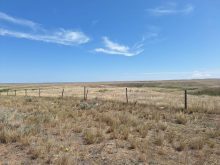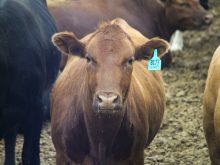Pulses should be listed on Dubai’s futures exchange because their production is much more efficient than animal protein, a senior trading house executive told Reuters March 30.
Traders have been urging managers of the Dubai Gold and Commodities Exchange to list pulses – such as peas, beans, lentils and chickpeas – since 2005, said Sudhakar Tomar, managing director of Hakan Agro DMCC, one of the leading food commodities trading company in the Gulf region.
“I think with the current uncertain economic climate the exchange is wary of introducing new products to the listings, but right now producing animal protein has become very costly and we have to encourage the alternatives,” Tomar said in an interview.
Read Also

Farming Smarter receives financial boost from Alberta government for potato research
Farming Smarter near Lethbridge got a boost to its research equipment, thanks to the Alberta government’s increase in funding for research associations.
“Producing animal protein requires a lot of energy and at this time we have to look at ways to cut back on all these extra costs, so shifting to consuming pulses is a solution,” he said, adding that about 14 kilograms of yellow corn are needed to produce just one kilogram of chicken.
Some 60 million metric tonnes of pulses are produced every year globally, but only a sixth of that amount are listed on futures exchanges – and when a commodity is not listed it tends to be marginalized, Tomar said.
“The cheapest animal protein is chicken which is $1,200 per tonne, while the cheapest pulse, which is yellow peas, is only one fifth of that price,” he added.
But pulses are not yet a popular dinner choice in the Gulf region.
Total food imports to the region were $12 billion last year and some 75 per cent of that was animal protein, Tomar said.














